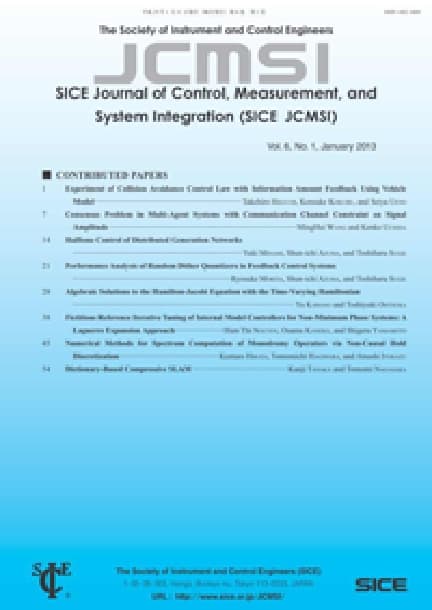Coordinated Control of Multi-Robot Systems: A Survey
Jorge CORTÉS, Magnus EGERSTEDT
pp. 495-503
DOI:
10.9746/jcmsi.10.495Abstract
Recently, significant gains have been made in our understanding of multi-robot systems, and such systems have been deployed in domains as diverse as precision agriculture, flexible manufacturing, environmental monitoring, search-and-rescue operations, and even swarming robotic toys. What has enabled these developments is a combination of technological advances in performance, price, and scale of the platforms themselves, and a new understanding of how the robots should be organized algorithmically. In this paper, we focus on the latter of these advances, with particular emphasis on decentralized control and coordination strategies as they pertain to multi-robot systems. The paper discusses a class of problems related to the assembly of preferable geometric shapes in a decentralized manner through the formulation of descent-based algorithms defined with respect to team-level performance costs.









